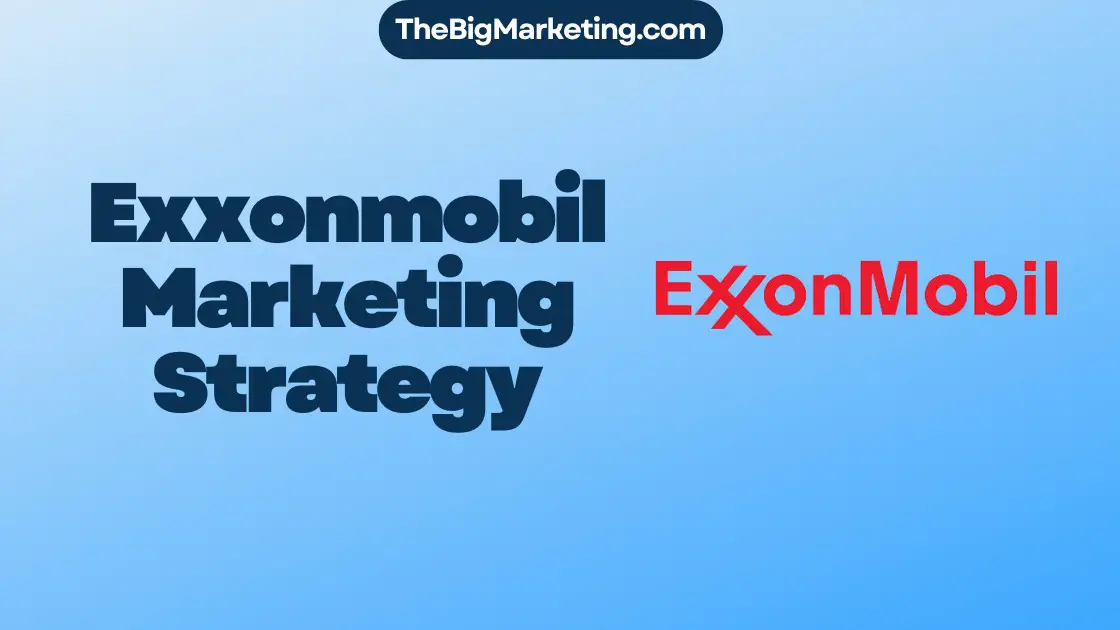Welcome to our complete guide on promotional marketing strategy in 2024. In today’s competitive business landscape, it is crucial for brands to effectively promote their products and services to stand out and attract customers. Promotional marketing plays a key role in achieving these goals by sharing information about a brand, product, or service through various marketing channels.
Promotional marketing encompasses a range of strategies, including email marketing, social media promotions, and paid advertising, all with the aim of boosting brand awareness and driving sales. By leveraging these tactics, businesses can generate leads, build brand awareness, and establish themselves as thought leaders in their respective industries.
When it comes to promotional marketing, there are different types of approaches that brands can adopt. Personal selling involves one-on-one interactions, direct marketing utilizes digital channels for relationship-building, advertising campaigns create wide-reaching brand awareness, public relations builds a positive brand image, and events help generate leads and showcase a brand’s expertise.
Key Takeaways:
- Promotional marketing involves sharing information about a brand, product, or service across various marketing channels.
- Effective promotional strategies include email marketing, social media promotions, and paid advertising.
- The goals of promotional marketing are to generate leads, build brand awareness, and establish thought leadership.
- There are different types of promotional marketing, including personal selling, direct marketing, advertising, public relations, and events.
- By adopting the right promotional strategies, businesses can stand out in the market and attract customers.
Benefits of a Solid Promotional Strategy
A solid promotional strategy plays a crucial role in boosting the success of a marketing campaign. It encompasses a range of promotional activities aimed at generating leads and converting site visitors into customers. By implementing an effective promotional strategy, businesses can unlock several benefits that contribute to their overall growth and brand recognition.
Building Brand Awareness
One of the primary benefits of a solid promotional strategy is building brand awareness. By consistently promoting products or services through various channels, businesses can increase their visibility and stay top-of-mind for consumers. Through targeted promotional activities, such as social media campaigns and email marketing, brands can reach a wider audience and establish themselves as industry thought leaders.
Lead Generation and Conversion
A well-executed promotional strategy has the power to generate quality leads and drive conversions. By strategically positioning their offerings and showcasing their unique selling points, businesses can attract potential customers who are more likely to convert. Promotional activities like exclusive discounts, limited-time offers, and engaging content can encourage prospects to take action and become loyal customers.
Promoting New Product Features
A solid promotional strategy is essential for effectively promoting new product features or updates. By raising awareness about the latest offerings, businesses can create excitement among their target audience and increase the chances of adoption. Promotional activities such as product demonstrations, influencer collaborations, and online events provide opportunities to showcase the features and benefits of a new product.
Keeping Customers Informed
Promotional activities are not limited to acquiring new customers; they also play a vital role in keeping existing customers informed and engaged. Regular communication through email newsletters, social media updates, and personalized content helps businesses stay connected with their customer base. By providing valuable information, businesses can nurture customer relationships and encourage repeat purchases.
| Benefits of a Solid Promotional Strategy |
|---|
| Building Brand Awareness |
| Lead Generation and Conversion |
| Promoting New Product Features |
| Keeping Customers Informed |
Different Types of Promotional Marketing
When it comes to promoting your brand, product, or service, there are various types of promotional marketing strategies that can help you reach your target audience effectively. Understanding these different approaches and utilizing them strategically can boost brand awareness, generate leads, and drive sales. Here are the key types of promotional marketing strategies to consider:
1. Personal Selling
Personal selling involves one-on-one interaction with prospects, either in person or through direct communication channels. This approach brings a human touch to marketing efforts, allowing for personalized interactions and building meaningful relationships with potential customers.
2. Direct Marketing
In the age of digital marketing, direct marketing has gained significant importance. This strategy focuses on reaching potential customers directly using channels such as social media, SMS, emails, and push notifications. By targeting specific individuals or groups, direct marketing aims to build a relationship, increase engagement, and drive conversions.
3. Advertising
Advertising campaigns are a tried-and-true promotional marketing method for creating brand awareness on a large scale. Through various mediums such as print, television, radio, and online platforms, advertisements are strategically designed to capture the attention of a wide audience and communicate key brand messages.
4. Public Relations
Public relations (PR) plays a crucial role in building a positive brand image and maintaining a favorable reputation in the eyes of the public. PR professionals leverage media outlets, press releases, influencer partnerships, and other PR tactics to promote products or services, improve brand perception, and enhance credibility.
5. Events
Events, both offline and online, offer unique opportunities to engage with your target audience and create memorable brand experiences. Whether it’s trade shows, conferences, webinars, or virtual events, they serve as platforms for generating leads, showcasing expertise, and positioning your brand as a thought leader in the industry.
By incorporating a mix of personal selling, direct marketing, advertising, public relations, and events into your promotional strategy, you can effectively reach your target audience, build brand awareness, and drive conversions. Each approach brings its own advantages and should be tailored to suit your specific marketing goals and target audience.
Steps to Create an Effective Promotional Strategy
Creating an effective promotional strategy requires careful planning and consideration of key factors such as the target audience, marketing budget, digital channels, and the overall marketing mix. By following these steps, you can develop a promotional strategy that effectively reaches and engages your audience while maximizing your marketing efforts.
Define Your Target Audience
The first step in creating a successful promotional strategy is to identify and understand your target audience. Consider their demographics, preferences, pain points, and preferred communication channels. This information will help you tailor your promotional activities to effectively reach and resonate with your audience.
Determine Your Marketing Budget
Allocating your marketing budget effectively is crucial for ensuring the success of your promotional strategy. Carefully consider your marketing objectives and allocate resources accordingly to maximize your ROI. This may include investment in digital advertising, content creation, social media campaigns, and other promotional activities.
Follow Your Target Audience’s Digital Footsteps
To effectively promote your brand, products, or services, it’s important to understand where your target audience spends their time online. Identify the digital channels that are most relevant to your audience, whether it’s social media platforms, search engines, industry-specific websites, or email newsletters. By focusing your efforts on the channels your audience frequents, you can increase the effectiveness of your promotional campaigns.
Create the Right Marketing Mix
The marketing mix refers to the combination of promotional channels and tactics that you will utilize to reach your target audience. Consider which channels, such as email marketing, social media, content marketing, influencer partnerships, or search engine optimization, align with your overall promotional goals and resonate with your audience. Create a well-rounded mix that allows you to leverage multiple channels for maximum impact.
Launch Your Campaign and Analyze Results
Once you’ve defined your target audience, determined your budget, selected the digital channels, and crafted your marketing mix, it’s time to launch your promotional campaign. Monitor and analyze the results to measure the success of your efforts. Track key metrics such as brand awareness, website traffic, engagement, conversions, and ROI. Make adjustments as necessary to optimize your promotional strategy and continue to drive better results.
| Promotional Strategy Step | Description |
|---|---|
| Define Your Target Audience | Identify and understand your target audience by considering their demographics, preferences, pain points, and preferred communication channels. |
| Determine Your Marketing Budget | Allocate your marketing budget effectively to maximize your marketing efforts and achieve your promotional objectives. |
| Follow Your Target Audience’s Digital Footsteps | Identify the digital channels that your target audience frequents and focus your promotional activities on those channels. |
| Create the Right Marketing Mix | Select the appropriate mix of promotional channels and tactics that align with your goals and resonate with your audience. |
| Launch Your Campaign and Analyze Results | Execute your promotional campaign and measure its success by analyzing key metrics and making adjustments as necessary. |
Email Marketing as a Promotional Channel
In the digital age, email marketing has emerged as a powerful promotional channel for businesses of all sizes. With its cost-effectiveness and high return on investment (ROI), email marketing is an essential tool to boost brand awareness, increase website traffic, and drive conversions.
One of the greatest strengths of email marketing is its ability to engage with customers on a personal level. By delivering targeted messages directly to their inbox, brands can establish a direct line of communication and build a strong rapport with their audience. Engaging copy, compelling subject lines, and clear calls-to-action (CTAs) are crucial elements for capturing readers’ attention and motivating them to take the desired action.
By leveraging email marketing, businesses can effectively create brand awareness. With each email sent, companies have the opportunity to showcase their unique value proposition and establish a recognizable brand identity. Consistency in branding and delivering valuable content will contribute to brand recall and recognition among subscribers.
Increase Website Traffic and Conversions
Email marketing is a highly effective tool for driving traffic to a website. By incorporating strategically placed links and enticing call-to-action buttons within email content, businesses can direct recipients to relevant landing pages and encourage them to explore further. This targeted traffic can increase the likelihood of converting leads into paying customers and ultimately contribute to revenue growth.
Furthermore, email marketing allows businesses to segment their audience and tailor their messages based on specific customer preferences and behaviors. By sending personalized emails that resonate with individual recipients, brands can foster a sense of connection and relevance. Personalization can be achieved through personalized product recommendations, exclusive discounts, and relevant content that speaks directly to the recipient’s needs and interests, resulting in higher engagement rates and conversion rates.
When executed strategically, email marketing campaigns can have a significant impact on a business’s bottom line. The ability to measure key performance metrics such as open rates, click-through rates, and conversion rates provides valuable insights into the effectiveness of email campaigns. By analyzing these metrics, businesses can make data-driven decisions and optimize their email marketing strategy for better results.
| Benefits of Email Marketing | Key Metrics to Measure |
|---|---|
|
|
It’s important to note that email marketing should always comply with applicable regulations, such as the CAN-SPAM Act in the United States, to ensure that recipients have opted in to receive emails and have the option to unsubscribe.
Email marketing remains an indispensable promotional channel in today’s digital landscape. By crafting engaging content, personalizing messages, and tracking key metrics, businesses can harness the power of email marketing to enhance engagement, increase brand awareness, and drive valuable conversions.
Social Media Marketing as a Promotional Channel
Social media marketing has become an integral part of promotional strategies for brands looking to connect with their target audience in a personal and impactful way. With billions of users worldwide, social media platforms offer immense opportunities for brand awareness, audience engagement, and lead generation.
One of the key benefits of social media marketing is its ability to build and enhance brand awareness. By leveraging platforms like Facebook, Twitter, and Instagram, brands can reach a wide audience and showcase their products or services. Consistent and engaging content on social media helps create a strong brand presence, making it easier for potential customers to recognize and connect with the brand.
In addition to brand awareness, social media marketing is also effective in attracting new leads. Social media platforms provide robust targeting options that allow brands to reach their specific target audience based on demographics, interests, and behaviors. By tailoring content to resonate with their target audience, brands can capture the attention of potential customers and generate valuable leads.
Furthermore, social media marketing enables brands to foster an authentic relationship with their existing customers. Through interactive posts, live videos, and direct messaging, brands can engage with their audience on a personal level. This engagement helps build trust, loyalty, and advocacy, leading to increased customer retention and advocacy.
Different social media platforms offer various promotional tactics that brands can leverage. For instance, partnering with influencers can amplify brand reach and credibility. Influencers have built a loyal following and can help promote products or services to their engaged audience. Additionally, interactive posts such as polls, quizzes, and contests encourage audience participation and create a sense of community.
To illustrate the effectiveness of social media marketing as a promotional channel, consider the following data:
| Social Media Platform | Monthly Active Users (in billions) | Engagement Rate | Brand Awareness Growth |
|---|---|---|---|
| 2.8 | 5.2% | 12% | |
| 1.3 | 6.7% | 15% | |
| 0.38 | 3.9% | 8% |
These figures depict the immense potential of social media marketing for brand awareness, engagement, and growth. By incorporating social media into their promotional strategies, brands can effectively connect with their target audience, establish a strong online presence, and drive meaningful results.
Content Marketing as a Promotional Approach
In today’s digital landscape, content marketing has emerged as a powerful promotional approach for businesses seeking to grow organic traffic, enhance brand positioning, and foster audience engagement. By creating valuable and relevant content across various formats such as blog posts, videos, and infographics, brands can effectively attract and captivate their target audience.
1. Growing Organic Traffic
Content marketing plays a vital role in driving organic traffic to a brand’s website. By consistently producing high-quality content that provides valuable information and answers audience questions, brands can improve their search engine rankings and increase visibility in relevant search results. This, in turn, leads to a steady stream of organic traffic from users who are genuinely interested in the brand’s offerings.
For example, a skincare brand can publish blog posts addressing common skincare concerns and providing expert tips. These informative pieces serve as a magnet for users searching for solutions, attracting them to the brand’s website and potentially converting them into customers.
2. Positioning the Brand as a Leader
Content marketing is an effective tool for establishing a brand’s thought leadership and industry expertise. By consistently publishing insightful and informative content, brands can demonstrate their knowledge and provide value to their audience. This positions them as trustworthy sources of information within their respective industries.
Brands can leverage content marketing to share their unique perspectives, industry insights, and innovative ideas. This establishes their authority and credibility, ultimately enhancing their brand positioning and attracting a loyal following.
3. Increasing Audience Engagement
One of the key benefits of content marketing is its ability to foster audience engagement. By creating content that resonates with the target audience, brands can spark conversations, encourage social sharing, and build a community of loyal supporters.
For instance, a fitness brand can create videos showcasing workout routines, healthy recipes, and success stories of their customers. This type of content not only educates and inspires the audience but also encourages them to engage with the brand by commenting, sharing, and seeking further advice.
Through a well-executed content marketing strategy, brands can create a virtuous cycle of engagement, where their audience becomes active participants in the brand’s story.
| Benefits of Content Marketing as a Promotional Approach | Examples |
|---|---|
| 1. Drives organic traffic by improving search engine rankings | A blog post featuring a comprehensive guide to organic gardening tips |
| 2. Establishes the brand as a thought leader | Thought-provoking industry insights shared through a whitepaper |
| 3. Fosters audience engagement and community-building | A behind-the-scenes video series showcasing the brand’s creative process |
Overall, content marketing serves as a powerful promotional approach, enabling brands to grow their organic traffic, position themselves as industry leaders, and engage with their target audience. By consistently delivering valuable and relevant content, brands can build brand recognition, trust, and ultimately drive business growth.
Search Engine Optimization (SEO) for Promotional Marketing
As the search landscape continues to evolve, search engine optimization (SEO) has become integral for brands aiming to enhance their brand visibility and attract potential customers. With consumers relying on various platforms for information, it is crucial for businesses to optimize their online presence to appear prominently on search engine results pages (SERPs) and gain visibility across different channels.
Implementing effective SEO strategies is essential for brands looking to increase their brand visibility in the competitive digital marketplace. By focusing on creating compelling, optimized, and relevant content, brands can improve their rankings on search engine results pages, driving organic traffic and boosting brand awareness.
Optimizing Content for Search Engine Visibility
One of the key aspects of SEO is optimizing website content to align with relevant search queries. By conducting thorough keyword research and including targeted keywords naturally throughout the content, brands can better position themselves for visibility in search engine results.
However, it is important to note that overusing keywords can have a negative impact on search engine rankings. Search engines prioritize user experience, so it is crucial to create high-quality, informative content that is valuable to the target audience.
Building High-Quality Backlinks
Another important aspect of SEO is building a strong backlink profile. Backlinks are links from external websites that lead back to your website, indicating its credibility and authority. The more high-quality backlinks a website has, the more trustworthy it appears to search engines, resulting in higher rankings.
Brands can build backlinks by creating valuable and shareable content that naturally attracts links from other websites. This can be done through guest blogging, partnering with influencers, or collaborating with relevant industry publications.
Optimizing Website Speed and Mobile-Friendliness
In today’s fast-paced digital world, website speed and mobile-friendliness are crucial for both user experience and search engine rankings. Slow-loading websites and websites that are not optimized for mobile devices can result in higher bounce rates and lower search engine rankings.
Brands should prioritize optimizing their website speed by compressing images, minifying code, and utilizing caching techniques. Additionally, implementing a responsive design that adapts to different screen sizes ensures a seamless user experience across devices.
Monitoring and Analyzing Performance
Regularly monitoring and analyzing SEO performance is essential for identifying areas of improvement and ensuring ongoing success. Brands can utilize various tools and analytics platforms to track keyword rankings, organic traffic, and user engagement metrics.
Based on the insights gained, brands can make data-driven decisions to optimize their SEO strategies, refine their keyword targeting, and adjust content creation efforts to better resonate with their target audience.
SEO Checklist for Promotional Marketing
Refer to the following checklist to ensure your promotional marketing efforts are optimized for search engine visibility:
- Perform keyword research to identify relevant and high-traffic keywords.
- Create high-quality, informative content that incorporates targeted keywords naturally.
- Optimize meta tags, titles, and headings to improve search engine visibility.
- Build high-quality backlinks from authoritative websites within your industry.
- Optimize website speed and ensure mobile-friendliness for a seamless user experience.
- Regularly monitor and analyze SEO performance using analytics tools.
- Make data-driven adjustments to improve search engine rankings and organic traffic.
By leveraging the power of search engine optimization, brands can effectively increase their brand visibility, drive targeted traffic to their websites, and ultimately achieve their promotional marketing goals.
The Role of Artificial Intelligence (AI) in Promotional Campaigns
Artificial intelligence (AI) revolutionizes the way promotional campaigns are executed, providing valuable data insights and enabling personalized content delivery. By leveraging AI technologies, marketers can optimize their promotional activities, resulting in more effective campaigns and higher conversion rates.
AI enables the analysis of customer data patterns, allowing marketers to gain valuable insights into consumer behavior and preferences. These data insights empower brands to create tailored advertisements that resonate with their target audience. By delivering personalized content, brands can establish stronger connections with customers and increase the effectiveness of their promotional efforts.
Additionally, AI plays a crucial role in enhancing campaign performance through analytics. Marketers can use AI-powered analytics tools to monitor and measure the impact of their promotional campaigns in real-time. This allows for continuous optimization, as marketers can identify areas of improvement and make data-driven decisions to increase the success of their campaigns.
Furthermore, AI enables marketing automation. With automated processes, marketers can streamline their promotional activities and free up time to focus on strategy and creativity. AI-powered automation tools can handle tasks such as email marketing, social media scheduling, and customer segmentation, ensuring that the right message reaches the right audience at the right time.
In summary, artificial intelligence brings immense value to promotional campaigns by providing data insights, enabling personalization, and automating marketing activities. By leveraging AI technologies, marketers can enhance the effectiveness of their campaigns and achieve better results while delivering a personalized experience to their target audience.
Harnessing the Power of the Metaverse in Promotional Strategies
The metaverse provides exciting new opportunities for brands to create immersive and interactive promotional campaigns. By leveraging virtual experiences, immersive brand environments, and community-building, brands can captivate their audience in ways never before possible.
Within the metaverse, brands can transport their customers into virtual experiences, allowing them to fully engage with their products or services. These virtual experiences can range from interactive product launches to immersive brand environments, where customers can explore and interact with the brand in a dynamic and unique way.
One of the key advantages of the metaverse is its ability to foster deeper connections and storytelling opportunities. Brands can create narratives within the metaverse that resonate with their audience, building a sense of loyalty and engagement. By immersing customers in a virtual world, brands can tap into their emotions and leave a lasting impression.
Moreover, the metaverse offers unparalleled community-building possibilities. Brands can create virtual communities within the metaverse where like-minded individuals can connect, share experiences, and engage with the brand and its offerings. These communities not only strengthen brand loyalty but also provide valuable insights and feedback for future promotional campaigns.
In conclusion, the metaverse presents a host of exciting opportunities for brands to revolutionize their promotional strategies. By embracing virtual experiences, immersive brand environments, and community-building, brands can create immersive and engaging campaigns that leave a lasting impact on their audience.
Conclusion
A comprehensive marketing strategy is essential for effective promotional campaigns in 2024. To maximize success and ROI, it is crucial for brands to stay updated with the latest trends and insights.
By encompassing various channels such as email marketing, social media promotions, content marketing, and SEO, brands can create a powerful and integrated approach to their promotional activities. They can build brand awareness, engage with their target audience, and position themselves as thought leaders in their industry.
To stay ahead of the competition, brands should embrace emerging trends like short-form video and social media engagement. By leveraging AI and personalization, they can deliver tailored experiences that resonate with their audience. Additionally, exploring the metaverse and creating immersive brand environments can enhance brand engagement and foster a sense of community among consumers.
In 2024, marketing strategies should focus on strong branding, data-driven insights, and maximizing ROI. By adapting to the evolving landscape and utilizing innovative tactics, brands can create impactful promotional campaigns that drive results and leave a lasting impression on their target audience.



